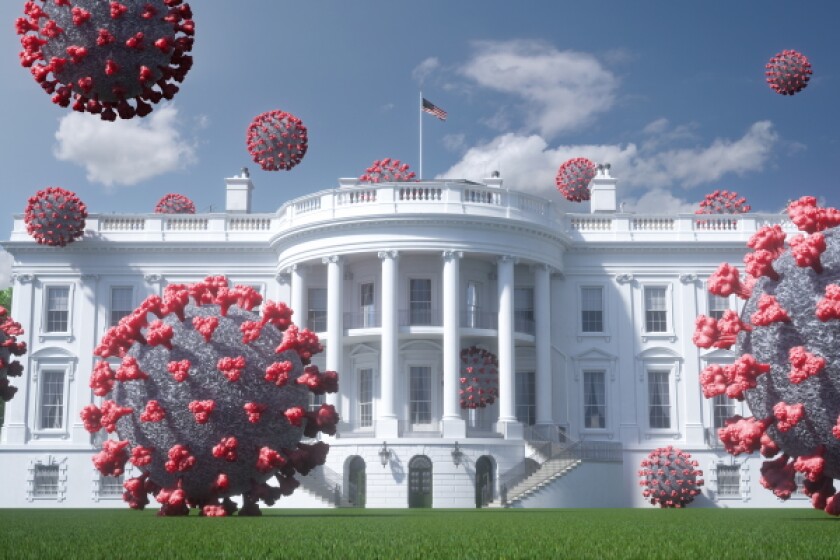Two weeks ago, I went to the Bronx High School of Science to get my first COVID vaccine – Moderna's.
It was an exciting day, and not just because I was getting the vaccine. I felt like I was part of history. After all, getting this shot just over a year after the start of the pandemic, as have 40% of the US population (131 million people) as of publication, was nothing short of a miracle.
According to the Wellcome Trust, a charitable foundation focused on health research based in London, it usually takes around 10 years to develop a vaccine.
A COVID vaccine was probably always going to come quicker than that, given the severe health and economic imperatives it imposed on world governments. But even still, to get four vaccines (from Johnson & Johnson, Pfizer, AstraZeneca and Moderna) developed this quickly was amazing – even people in the biotech industry think so.
Related articles
The view of one intellectual property head from a major US pharma company, who I spoke to in January (not one of the vaccine makers), was that the pace of vaccine innovation was remarkable.
“I don’t think people have really grasped how monumental that achievement was,” he said. “At the outset of this, I would not have bet that we would have one vaccine by now, let alone four.
“It shouldn’t have worked – some of these vaccines are based on technology that has never worked for anything else. There should have been bigger side effects or the vaccines shouldn’t have been as good. But there weren’t, and they are,” he added.
But this phenomenon won’t occur again if President Joe Biden and members of the World Trade Organization (WTO) bow to demands to introduce a waiver for intellectual property related to COVID vaccines and other treatments.
In October, the Indian and South African governments asked the WTO to waive certain provisions of the TRIPS Agreement to help prevent, contain and treat COVID.
That idea has since picked up steam – including among some of our reporters – and, as of late, groups of individuals have been asking the US president to support it.
Past world leaders and Nobel laureates, including former UK prime minister Gordon Brown and former Colombia president Juan Manuel Santos, sent Biden a letter last week urging him to support the South African-Indian proposal.
Among those who signed were 10 US senators, including former-presidential candidate and current senator for Vermont, Bernie Sanders.
Vaccine success
There were a few key drivers behind the staggering vaccine development pace over this past year, and most of them were facilitated by the IP that proponents of the waiver would like to see temporarily struck down.
Pharma companies that usually compete with one another came together in ways they never had before. They, along with world governments and research organisations, pumped enormous sums of money into research and development.
One of the few non-IP things that contributed to the speed of COVID vaccines and other treatments was how hard the researchers worked behind the scenes – which, I feel compelled to say, as someone who is good friends with one of the scientists at the University of Oxford.
As Novartis IP pharma head Galit Gonen pointed out in a recent op-ed, IP enables biotech collaborations such as the ones that made these vaccines possible by allowing different originators and universities to come together in complex cross-licensing deals or other variable arrangements.
More importantly, patents and the monopolies they provide give pharma companies huge incentives to develop vaccines quickly in situations like the one we’ve been in – mainly, exclusive access to guaranteed markets of billions of people that facilitate appropriate return on investment.
For that reason alone, Biden shouldn’t support a COVID IP waiver, and neither should the members of the WTO.
Why would these companies – which, like it or not, are corporate entities with commercial interests – produce treatments at such speed again knowing that these incentives could be pulled away at any moment?
The other side
In my own family, my 78-year-old father who lives in Portugal hasn’t had a vaccine. Because I live in the US, I’ll probably have both my shots before he has even had one. And he will likely have had both before someone his age in South Africa has even had one.
After all, the African continent contains just over 17% of the global population, and had received just 1.5% of vaccinations as of mid-March. It’s deeply unfair.
But none of us would have any vaccines at all, or at least not for several more years, had the proper IP incentives not been in place. Waiving IP at this stage sets a dangerous precedent that could lead to exactly that situation in the future, one where patients across the world suffer more in the long term.
There’s also the point that there’s little evidence that waiving IP would help scale up the vaccination effort anyway.
Guilherme Cintra, director of innovation policy at the International Federation of Pharmaceutical Manufacturers & Associations, pointed out last year that the funds needed to scale up vaccine manufacturing facilities would still be lacking if all IP on COVID treatments disappeared.
He noted that the transfer of know-how that would help ensure full compliance with strict regulatory standards would also be challenging.
With that in mind, then, the risk of a COVID IP waiver – where no one anywhere in the world would be able to get excited for a dose of health or sense of historical significance – clearly outweighs the reward, which could well be nothing.











